For 50 years climate research has accumulated on climate change, and governments, with the major democracies at the forefront, have failed to respond. Facing ‘a perilous, all-pervasive climate breakdown’, what will they do now?
Read more

For 50 years climate research has accumulated on climate change, and governments, with the major democracies at the forefront, have failed to respond. Facing ‘a perilous, all-pervasive climate breakdown’, what will they do now?
Read more
Restricting its foreign policy activities within the norms and processes of international law doesn’t sit well with the struggling hegemon, and the US has had to invent the imaginary and vague regime of a ‘rules-based global order’. Successive Australia governments seem prepared to go to war for a figment of the hegemon’s strategic imagination.
Read more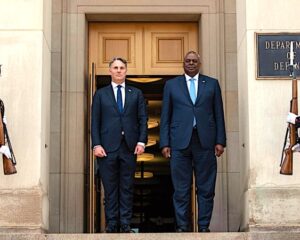
Submission to US strategic objectives is often on display as new Australian Defence Ministers ritually wend their way to Washington to offer up jaded homilies, full of hagiographic accounts of ANZUS and strained assertions of shared values. The new Minister’s recent visit, however, foreshadows a more dangerous abandonment of fundamental elements of national sovereignty.
Read more
Going to war over the ‘rules-based order’ seems unremarkable to our leaders. Its nature, and how it would be preserved by conflict, seems to be intuitively perceived by them. Yet, the elevation of the rules-based order to a status so sacrosanct that the destruction of civilisation is justified in its defence demands investigation.
Read more
Australia’s interests are not obviously met by joining gatherings on distant shores with leaders sharing different strategic concerns. The Asia Pacific remains at the heart of Australia’s economic and strategic interests and the crucible where Australia’s prosperity and peace will be forged.
Read more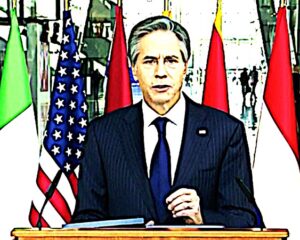
Bidenesque tales of a beneficent and wise ruler, who only wants his land to be the richest and strongest nation because of the benefit that it would bring to all, can’t be allowed to obscure the real situation in America, nor its brutally realist pursuit of its own interests through power.
Read more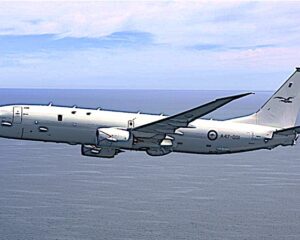
Credit is due to Australia’s new Prime Minister and Foreign Minister for moving swiftly to correct the foreign and climate policy failures of the Morrison era. But shouldn’t there be a similar rethinking and resetting of strategic policy?
Read more
Before the seductive power that security classifications, codeword documents, need-to-know briefings, and the jargon of militarist advisers blunt the critical faculties of ministers, which it almost always does, the new Australian government needs to consider the matter of war.
Read more
Putin’s forces might not progress far beyond the Dnieper River. And yet the invasion will reshape the world in which the next Australian government operates.
Read more
Russia’s President Putin rightly bears the greatest moral and legal opprobrium for the appalling death toll, atrocities, and destruction in Ukraine. But once the war reaches its conclusion, retrospectively the contribution of others will come under closer scrutiny.
Read more
In Australia, bipartisanship over defence has mutated into a democratic pathology. A courageous new Defence minister committed to transparency and participatory democracy is required.
Read more
In the 2022 election, too much is at stake for Australians to be duped into thinking that they ”remain well prepared for the future”, and into believing that everything can be fixed by unregulated economic growth.
Read more
Plenty of Australian parliamentarians have made more incendiary statements against Covid vaccination than the tennis star ever did. Who might this arbitrary censorship power fall on next?
Read more
US President Biden could be succeeded by a democratically elected illiberal administration beholden to violent and bizarre supporters. What would the implications of an illiberal America be for Australia?
Read more
Trends in Australia’s emissions growth are disturbing. What questions should be put to the political classes who aspire to take on the responsibility for the wellbeing, welfare, prosperity and security of Australian citizens?
Read more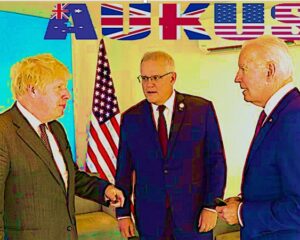
When the AUKUS nuclear-powered submarines are delivered, they will be expensive white elephants. And this strategically unsupportable and inordinately expensive project will distort defence policy for a generation.
Read more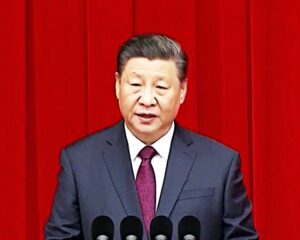
To either over-emphasise or understate the challenge presented by China is perilous. So Is Paul Dibb right to suggest that the West is failing to see China’s weakness, much as it failed to understand the weakness of the Soviet Union in the late 1980s?
Read more
The prospect of nuclear powered submarines has generated a lot of magical thinking in defence and strategic policy circles. But the incontrovertible fact is that submarines that don’t exist cannot either defend or deter.
Read more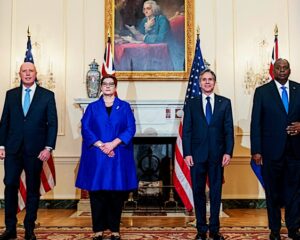
The nuclear submarine issue is simply a blind. AUKUS is just a distraction. The AUSMIN 2021 Joint Statement reveals the extent to which Australia is now entwined in US military war preparations.
Read more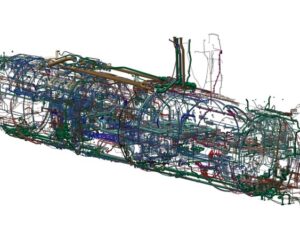
Leaving aside the potentially adverse strategic implications of Australia’s nuclear-powered submarine decision, for those who think a submarine capability is important, it is simply bad defence policy. Australian governments are now certain to be bedevilled by submarines for generations.
Read more